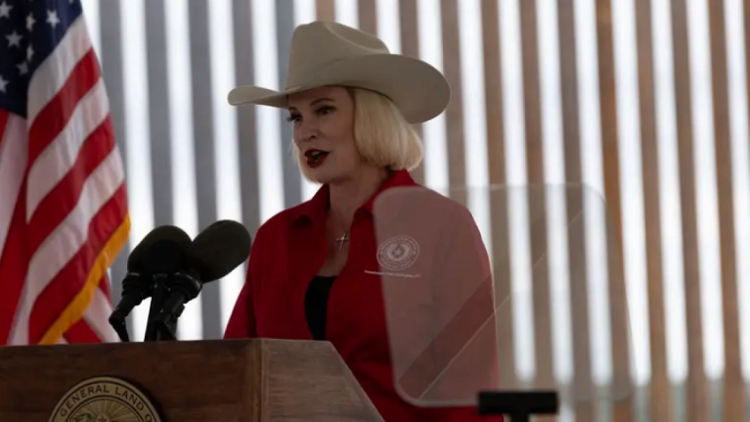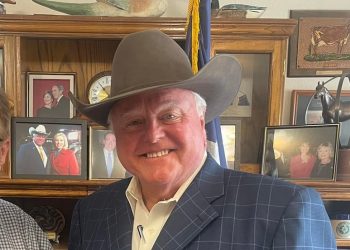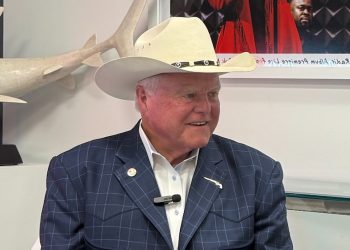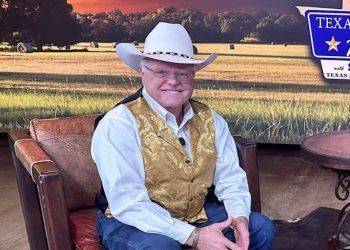Waco, TX – In a strong display of cooperation with the incoming Trump administration, Texas officials have signaled their readiness to support aggressive immigration enforcement measures, including the construction of new detention facilities and mass deportation efforts.
On Tuesday, Texas Land Commissioner Dawn Buckingham announced that the state would continue to provide land for the federal government’s immigration initiatives. Buckingham revealed that her office is already identifying property to be made available for deportation facilities as soon as the new administration takes office in January. The state’s extensive land holdings—approximately 13 million acres—are viewed as prime resources for the federal government’s needs, according to Buckingham.
The announcement came on the heels of a visit by Texas Governor Greg Abbott to National Guard and Department of Public Safety personnel involved in the state’s border security operation, Operation Lone Star. During the visit, Abbott emphasized the state’s commitment to working with the incoming Trump administration. He told service members, “The cavalry is here, quite literally with us here today,” a reference to the additional federal support they expect in the coming months.
Abbott introduced Tom Homan, the former acting director of U.S. Immigration and Customs Enforcement (ICE) and Trump’s pick to lead immigration enforcement efforts under the new administration. Homan assured Texas officials that the federal government would intensify its operations, specifically through an interior enforcement initiative aimed at mass deportations. “Hopefully, we get enough help to you where some of you, men and women, go home with your families,” Homan said, signaling a major ramp-up of deportation efforts.
Buckingham’s announcement of the land offer was highlighted by her visit to a 1,402-acre ranch in Starr County, which the state acquired in October. The ranch, located near Rio Grande City, is now being considered as a potential site for a deportation facility. The Texas General Land Office, under Buckingham’s leadership, has expressed its readiness to enter an agreement with the federal government to build a facility on the property. This facility would be dedicated to processing, detaining, and coordinating the deportation of what the state hopes will be the “largest deportation of violent criminals in the nation’s history.”
The proposed project, named “Jocelyn’s Initiative” in memory of Jocelyn Nungaray, a 12-year-old girl tragically killed by two Venezuelan men who were reportedly in the U.S. illegally, aims to address public concerns surrounding criminal illegal immigration. Buckingham explained, “Our goal is to ensure that no other parent has to, unfortunately, experience what Alexis has experienced,” referring to Jocelyn’s mother, Alexis Nungaray, who joined the announcement.
Starr County, with a population of just over 65,000, is situated in the Rio Grande Valley and is known for its wide-open spaces, making it an ideal location for the kind of facilities the state envisions. The county is also distinguished by its unique topography, which includes rolling hills—a rare feature in the otherwise flat valley region. The proximity to the U.S.-Mexico border and the county’s lack of developed infrastructure have made it an attractive area for border enforcement projects, including the border wall and potential immigration detention centers.
The Starr County facility, if approved, would be the first in the region specifically dedicated to processing deportations, setting it apart from other detention centers in the Valley that focus on processing migrants entering the U.S. Notably, the Ursula Central Processing Center in McAllen, once infamous for its harsh conditions, has since undergone renovations and shifted operations. The Donna facility remains operational as a migrant processing center.
As Texas moves forward with its plan, the state’s active role in supporting the Trump administration’s immigration policies underscores the ongoing partnership between the state and federal government. While the new deportation facility and related initiatives are still in the planning stages, they represent a significant escalation in the state’s approach to immigration enforcement, particularly in its long-standing efforts to address what it sees as the challenges posed by illegal immigration at the southern border.











